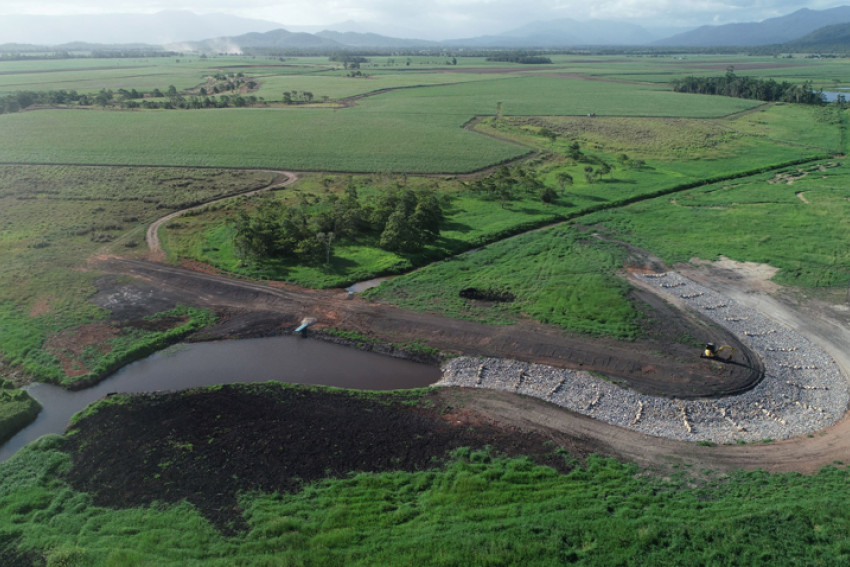Business
24 June, 2021
Farmland turned to wetland improves water quality.
Farmland on Sandy Creek Road in the Tully region now boasts a wetland as well as cattle and is acting as a water quality treatment system for the Great Barrier Reef lagoon.

Tully Sugar Limited set aside eight hectares of land to help trial ways of reducing nutrient and sediment run-off as part of a major reef water quality project.
The wetland has been formed on low-lying grazing land, using earthworks to encourage shallow flooding and allow natural wetland vegetation to grow back.
Since its construction in 2019, the wetland has been monitored for its effectiveness at removing nutrients and sediment from the water passing through. Data shows it is a high performing site.
As wetland vegetation has become more established, the wetland’s nitrogen removal capacity has consistently improved since construction. It is now estimated to remove over 1000 kg of nitrogen per year.
Tully Sugar Limited’s John Edwards said the company’s involvement in the project has been an opportunity to contribute to locally appropriate water quality solutions.
“It’s important to us that we’re not just talking about doing the right thing, but actually doing it.”
“The messages are clear. People want a productive and profitable sugar industry because it’s the lifeblood of our region, but they also want us to be environmentally sustainable.”
“Sugarcane is an important rural industry for the Wet Tropics, and Australia. We see it as our responsibility to take steps that ensure ongoing local and global support of the industry,” said Mr Edwards.
One of Australia’s largest sugar mills, Tully Sugar Limited exports locally produced, milled sugarcane to international markets.
The Wet Tropics Major Integrated Project’s Fiona George thanked the mill for their involvement.
“Tully Sugar Limited has not only donated land and assisted with water sampling across three wet seasons, but they have also provided logistics support, staff, workshop and shed spaces to help with the project’s implementation and have been wonderful advocates for the project right from the start,” she said.
“Agriculture is increasingly under the spotlight for its environmental impacts, including water quality and reef health. It’s encouraging to see corporate farms like Tully Sugar Limited leading change.
“Both corporate and family farms depend on the land and community support for their livelihoods, and this is just another example of people in the cane industry taking a lot of care to protect the land and ensure its viability into the future,” said Ms George.
Other wetlands constructed throughout the Tully-Johnstone region as part of the project are also showing promise in treating nitrogen-rich water.


